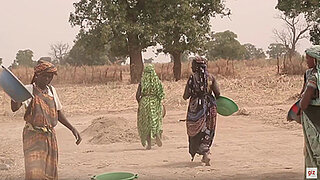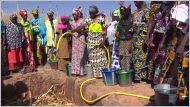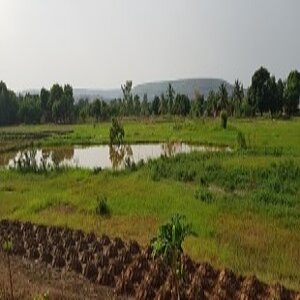Mali: Environmental auditing to mitigate climate change

Mali passes three new environmental auditing decrees.
At the end of 2018, Mali's Council of Ministers issued several decrees to implement environmental auditing. Environmental auditing is to be used to perform an advance assessment of the environmental consequences of policies and programmes and then, from a range of different options, select the policy strategies and activities on the ground which the assessment shows to be the least harmful to the environment.
Like other countries, Mali also differentiates between strategic environmental evaluations conducted at policy and strategy level, and environmental impact assessments (EIAs). The latter assess the potential environmental consequences of planned projects, particularly infrastructure projects, and identify offsetting measures to compensate for their negative effects. For example, the extraction of additional groundwater in drilling projects can be offset by activities which allow the groundwater table to rise due to increased infiltration. These include most types of erosion abatement and control activities, such as building stone walls and stacking small dams in watercourses. The feasibility studies conducted in the groundwork performed in advance of a project determine both the degree of environmental impact (using three categories) and the budget for the EIA. Before they can commence, all projects that fall in the two higher categories - those deemed to have medium to serious consequences for the environment and the climate - must undergo an environmental impact assessment and receive an appropriate license from the respective government authority. During project implementation, environmental audits are conducted by the responsible authorities to monitor whether the planned offsetting activities have actually taken place.
In countries around the world, most environmental auditing sees the environment as a static system, including in cases where ecosystems are subject to ongoing change and can thus be seen to be dynamic. The existing dynamics are also influenced by climate change. Taking account both of the environmental impact that the planned project or the policy to be assessed has on these ecosystem dynamics and the effects that climatic changes have on the planned project or policy to be assessed enables future climatic factors to be anticipated today.

As part of the International Climate Initiative (IKI), the German Federal Environment Ministry (BMU) funds the Programme Supporting the National Strategy for Adaptation to Climate Change in Mali. The programme is implemented jointly by the United Nations Development Programme (UNDP) and Deutsche Gesellschaft für Internationale Zusammenarbeit (GIZ) GmbH. In collaboration with another UNDP-funded project (Initiative Pauvreté Environnement) and the United Nations Environment Programme (UNEP), GIZ supports the Malian government in revising and drafting legislation and guidelines on conducting environmental auditing that takes account of climate change.
The process is managed by the Malian Environment Ministry and is coordinated at technical level with the Agency for the Environment and Sustainable Development (Agence de l'Environnement et du Développement Durable - AEDD). The Ministry has set up a steering committee whose members comprise not only the two aforementioned actors, but also other sectors, civil society, the private sector and independent experts. A team of national and international auditors monitor and support the process.
To date, the collaboration activities have produced the drafts for three decrees and their respective guidelines on strategic environmental evaluations, environmental impact assessments (EIAs) and environmental audits. The diagram (French language) below shows the key phases in a strategic environmental evaluation:
 Following technical validation of the various texts by the Malian Environment Council, a large-scale workshop was held with legal specialists from the different ministries on 5 July 2017. The aim was to sensitise participants to the topic of climate change in general and to explain the benefits of and the necessity for considering climate aspects in environmental audits. The participants were also informed in detail about the various draft decrees and prepared for the respective parliamentary consultations to enable the legislation to enter into force. The decrees and the associated implementing provisions (in the form of guidelines) were finally adopted by the Mali Council of Ministers on 15 November 2018.
Following technical validation of the various texts by the Malian Environment Council, a large-scale workshop was held with legal specialists from the different ministries on 5 July 2017. The aim was to sensitise participants to the topic of climate change in general and to explain the benefits of and the necessity for considering climate aspects in environmental audits. The participants were also informed in detail about the various draft decrees and prepared for the respective parliamentary consultations to enable the legislation to enter into force. The decrees and the associated implementing provisions (in the form of guidelines) were finally adopted by the Mali Council of Ministers on 15 November 2018.
The plan now is for the AEDD and the National Directorate for Sanitation and Environmental Nuisance Control (Direction Nationale de l'Assainissement, du contrôle des pollutions et des nuisances - DNACPN), whose work largely involves environmental auditing, to play a greater role in the process of applying this legislation. To aid the process, training is planned and support will be provided to assist the creation of a database for use in monitoring and control of environmental audits performed as well as the issuance of licenses.
The link has been copied to the clipboard
Contact
IKI Office
Zukunft – Umwelt – Gesellschaft (ZUG) gGmbH
Stresemannstraße 69-71
10963 Berlin









